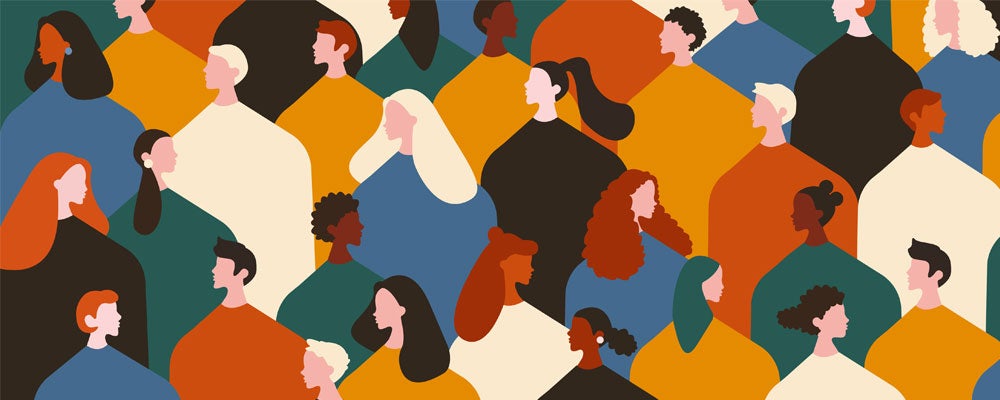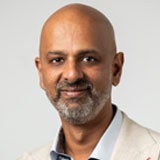Seen and heard

About
The Australian Human Rights Commission has been meeting with Arab, Jewish, Muslim and Palestinian communities in Australia to learn about their experiences of racism and discrimination following the most recent conflict in the Middle East. This is helping us to better understand how to support these communities and their safety. We are developing education resources and conducting community awareness raising about racism including to the broader community. Please note, this is not a monitoring or reporting project. If you would like to get incidence or reporting data, or seek support services, you can find information here.
Message from the Commissioner
Seen and Heard is an initiative that supports Arab, Jewish, Muslim and Palestinian communities facing increased racism in the aftermath of 7 October 2023.
My team and I have been privileged to spend several months in late 2024 and early 2025 meeting with and listening to the perspectives of leaders, academics, researchers and organisations working with affected communities in Australia. We have also attended several events including conferences, lectures and screenings. These events have given us the opportunity to better connect with individuals, hear their stories and enrich our understanding of the hope, the frustration, pain, fear and sense of injustice they carry with them. We welcome invitations to in-person or online events your community is hosting around Australia.
While this project focuses on the recent experiences of affected communities in Australia, we do not disregard the long history of violence and conflict, nor the unhealed wounds that continue to deepen.
Among all groups, we have heard instances of physical assault; of online abuse; severed friendships and lost opportunities; of deep-seated feelings of fear, isolation and being ‘othered’; of mental and emotional exhaustion. Community members have reported direct impacts of conflict, including loss of family and friends, displacement, missing loved ones, and widespread trauma. Compounding these experiences is the feeling that they are neither acknowledged nor validated by leaders and individuals in the broader community.
Many groups have emphasised the systemic racism in government, the workplace, the media, law enforcement and other institutions. They expressed how this type of racism works to delegitimise advocacy and punish those involved in it, leading individuals to self-censor or hide their identities. Additionally, racism has a specific and often disproportionate impact on women, young people, people with disability and those living in regional areas of Australia.
We have heard that the different forms racism and discrimination experienced by communities all have unique aspects. Anti-Palestinian racism, which affects Christian Palestinians as well as non-Palestinian supporters, is often conflated with Islamophobia and anti-Arab racism. We have also heard about the harms of racist Islamophobic stereotypes, especially those which endanger individuals who are visibly Muslim.
We were told that antisemitism is a specific form of racism, embedded in centuries of vilification and persecution. Some members of the Jewish community also pointed out that anti-Zionist sentiment often acts as code for antisemitism and contributes to dehumanising Jewish people.
Adding to this complexity is the diversity, distinction and overlap between communities: not all Muslims are Arabs, and vice versa; not all Palestinians are Muslim; not all Israelis are Jewish and not all Jewish people subscribe to the same political views.
We are currently investigating the prevalence of racism at Australian universities. This project will assess how effectively universities are dealing with racism and will recommend reforms to better address it.
We acknowledge the concerns expressed to us by some that the Australian Human Rights Commission has not adequately represented the interests of their community. We are grateful to you for engaging with us despite this. We hear your feedback. We want to make sure we speak up about the experiences of all communities living with increased racism, discrimination, and vilification and the actions needed to address it.
We try to end each conversation with the same question: “What can we do to make things better?” The responses we have received show that there is plenty of hope left. We have heard stories of resilience, of strength, and most of all, of a determination to keep getting up in the morning to create a fairer world for ourselves, our children and our communities.
In a landscape riven with trauma and distrust, the use of words like ‘empathy’ and ‘humanity’ runs the risk of sounding simplistic and naive. Yet these are the words we keep hearing in our conversations. We all want to be seen and heard, we want our experiences to be validated, we want to live with dignity, agency and respect, and have an equal standing in the application of law.
In the coming weeks and months, we will continue to have conversations with individuals and organisations and speak with a wider cross-section of people in affected communities. The upcoming social media campaign for Seen and Heard will focus on amplifying the voices and experiences of affected communities, as well as generating greater empathy and awareness among the public.
Below is a summary of the insights shared with us so far. I welcome any suggestions, advice or feedback you may have. We will be in touch again with further updates.
Kind regards,
-
1. Anti-Palestinian racism
Community insights and recommendations – February 2025
Initial consultations
The initial phase of the project began in early September 2024 and has involved meeting with peak bodies, representative organisations, community groups, and other stakeholders to understand the key issues affecting communities. Though some stakeholders told us that trust in the Commission had eroded in their respective communities, they were still willing to engage and share their views.
Consultations are ongoing and to date have included more than 100 meetings with 55 stakeholders and organisations from Arab, Jewish, Muslim and Palestinian communities, along with various independent organisations, academic research groups and government offices.
Consultations have highlighted the diversity in experiences, complexities of identity, and increases in racism and discrimination since October 2023. Participants have given us insights into their community’s experiences, key challenges, considerations and solutions.
Community experiences
Arab, Jewish, Muslim and Palestinian communities in Australia report complex and diverse identities often misunderstood in broader society.
Across all communities, experiences of antisemitism, Islamophobia, anti-Palestinian and anti-Israeli discrimination are common and reported to have increased significantly since October 2023.
Common incidents include verbal harassment, physical assault and property defacement and destruction. There were also reports of stereotyping and discrimination, with online hate speech and doxing the most common experiences. Many individuals report significant anxiety, stress and re-traumatisation because of the conflict.
A common characteristic of racist incidents is viewing or framing everyone within the same community or social groups as having the same underlying, inherent nature. This dehumanisation causes feelings of isolation, lack of belonging and fear for personal safety.
- 2. Antisemitism
- 3. Islamophobia
- 4. Anti-Arab racism
- 5. Media and political rhetoric
- 6. Institutional support and trust
-
1. Validation and open dialogue

Recommendations and ways forward
There were common suggestions raised around ways to support Arab, Jewish, Muslim and Palestinian communities facing increased racism.
- 2. Educational initiatives
- 3. Strengthening anti-racism policies and media accountability
Insights or feedback
Do you have suggestions, insights or feedback about Seen and Heard? Email us at seenandheard@humanrights.gov.au
Report and support
If you experience or witness any racist behaviour, get more information on the steps you can take to protect yourself or others and seek support.

